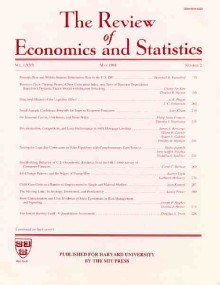
Alfaro, L., Kalemli-Ozcan, S. and Volosovych, V. (2008). Why Doesn't Capital Flow From Rich To Poor Countries: An Empirical Investigation Review of Economics and Statistics, 90(2):347--368.
-
Affiliated author
-
Publication year2008
-
JournalReview of Economics and Statistics
We examine the empirical role of different explanations for the lack of capital flows from rich to poor countries—the “Lucas Paradox.” The theoretical explanations include cross-country differences in fundamentals affecting productivity, and capital market imperfections. We show that during 1970–2000, low institutional quality is the leading explanation. Improving Peru's institutional quality to Australia's level implies a quadrupling of foreign investment. Recent studies emphasize the role of institutions for achieving higher levels of income but remain silent on the specific mechanisms. Our results indicate that foreign investment might be a channel through which institutions affect long-run development.